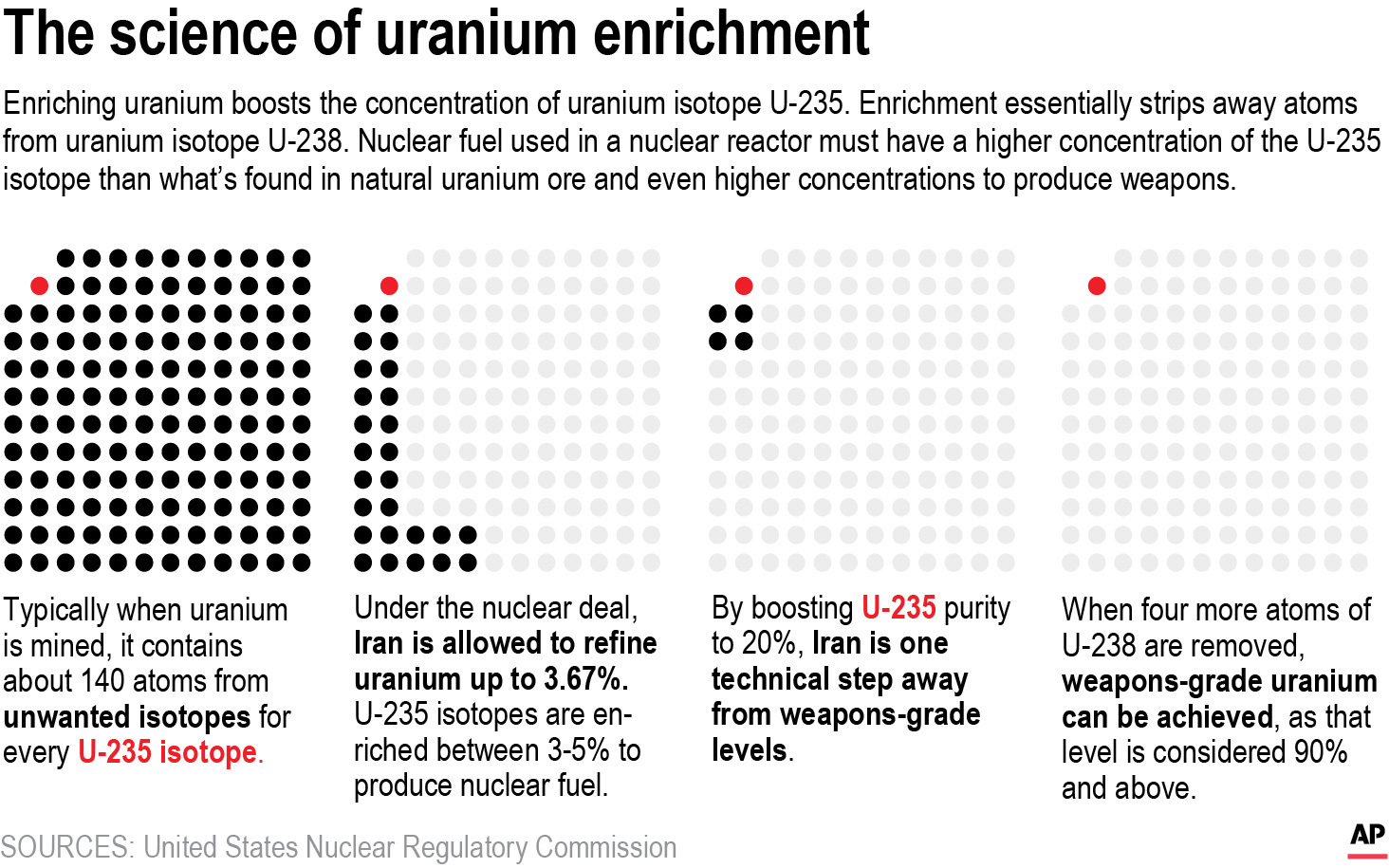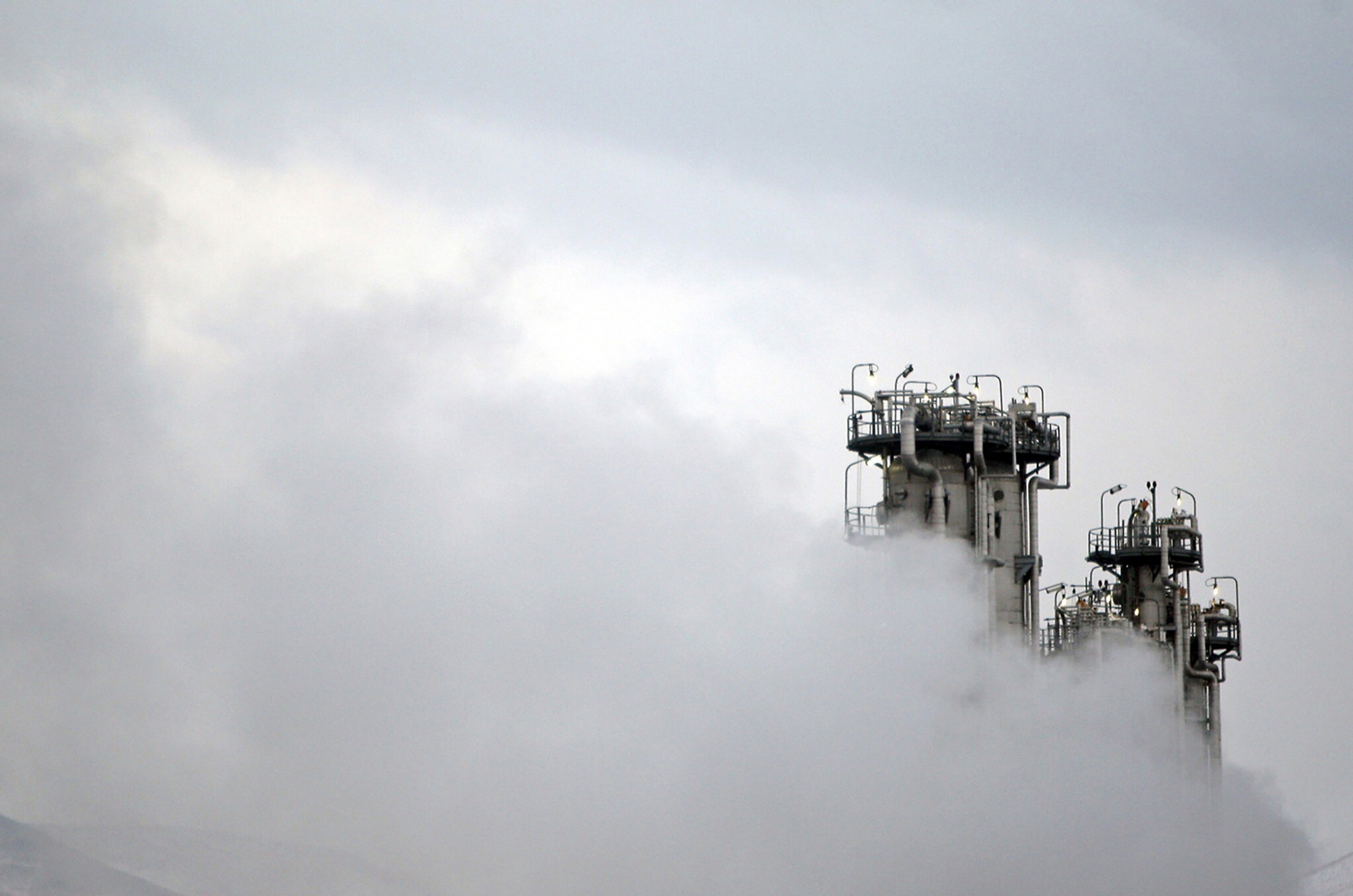Britain, France and Germany say Tehran has ‘no credible civilian use’ for the material, which it says it is now researching in breach of nuclear deal
BERLIN, Germany, Media www.rajawalisiber.com — European powers on Saturday voiced deep concern over Iran’s plans to produce uranium metal, warning that Tehran has “no credible civilian use” for the element.
“The production of uranium metal has potentially grave military implications,” said the foreign ministers of Britain, France and Germany, the so-called E3, in a joint statement.
Uranium metal can be used as a component in nuclear weapons. Iran had signed up to a 15-year ban on “producing or acquiring plutonium or uranium metals or their alloys” under the so-called Joint Comprehensive Plan of Action (JCPOA) signed in 2015 with world powers.
“We strongly urge Iran to halt this activity, and return to compliance with its JCPOA commitments without further delay if it is serious about preserving the deal,” said the ministers.
Their call came after Iran told the UN nuclear watchdog on Wednesday that it was advancing research on uranium metal production, saying it is aimed at providing advanced fuel for a research reactor in Tehran.

In a response to the foreign ministers’ statement, Iran’s atomic energy organization urged the IAEA to avoid creating any “misunderstanding,” adding that it had not yet “presented the design information questionnaire (DIQ) of the uranium metal factory” to the watchdog.
This would be done “after carrying out the necessary preparations and… within the deadline set by law,” the organization said, in reference to a five-month deadline set by the Iranian parliament in December, mandating Tehran to ready the factory.
It said it hoped the IAEA would not cause further “misunderstanding in the future, by refraining from mentioning unnecessary details in its reports.”
The landmark 2015 deal between Iran and the United States, China, Russia, Britain, France, and Germany to curb Tehran’s nuclear ambitions has been largely in tatters since US President Donald Trump withdrew from it in 2018 and reimposed harsh sanctions.
The Iranian government has signaled a readiness to engage with President-elect Joe Biden, who takes office on January 20 and who has expressed willingness to return to diplomacy with Tehran.
The Iranian breaches have included exceeding the stockpile limit on enriched uranium, enriching beyond the permitted purity level, and using more advanced centrifuges than permitted under the deal.
Iran recently informed the International Atomic Energy Agency of its plans to increase enrichment to 20 percent, a technical step away from weapons-grade levels of 90%.

A decision to begin enriching to 20% purity a decade ago nearly triggered an Israeli strike targeting Iran’s nuclear facilities. The tensions only abated with the 2015 deal, which saw Iran limit its enrichment in exchange for the lifting of economic sanctions.
Tensions have increased since the assassination in late November of Iranian nuclear physicist Mohsen Fakhrizadeh.
In the aftermath of the attack, which Iran blamed on Israel, hardliners in Tehran pledged a response and Iran’s parliament passed a controversial law calling for expanded nuclear activity and for an end to IAEA inspections.
The law also demanded Iran’s Atomic Energy Organization “operate a facility of metal uranium production” within five months.
Iran says all of its breaches of the 2015 deal’s limits are reversible, but insists that the US has to come back to the deal and lift sanctions first.

European nations have warned that Iran’s moves risk “compromising the important opportunity for a return to diplomacy with the incoming US administration.”
Earlier this week the head of the UN’s nuclear watchdog said that there were “weeks” left to salvage the nuclear deal.
Rafael Grossi, director of the International Atomic Energy Agency, said at the Reuters Next conference that Tehran was advancing “quite rapidly” toward enriching uranium to 20 percent, as it has announced it would, in breach of the accord. He said the IAEA has assessed Iran will be able to produce some 10 kilograms a month.
